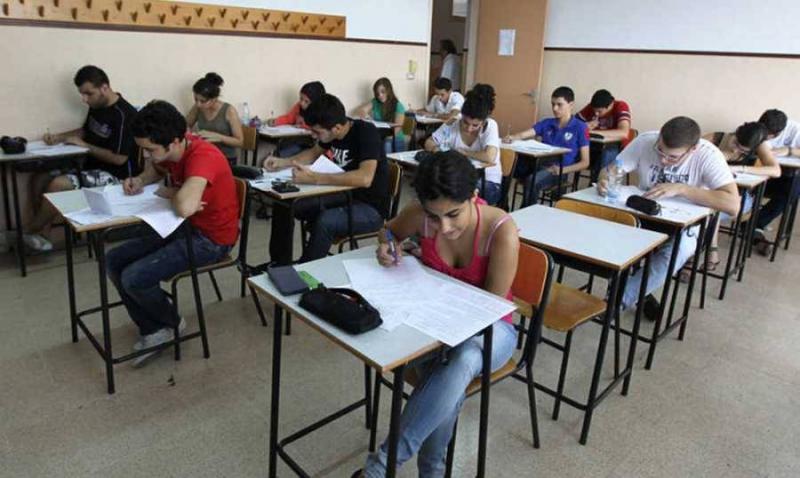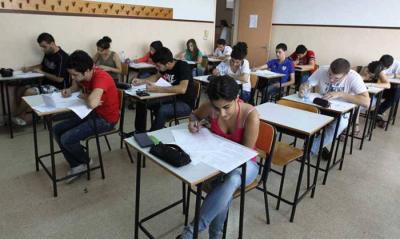In a few days, the official exams for the secondary certificate in its four branches will commence in various provinces of Lebanon. These unified exams aim to preserve this requirement after overcoming the debate surrounding the adoption of elective subjects, which differ from last year's curriculum. It takes into account what students from the border areas in the south learned after being displaced due to security conditions arising from confrontations with Israeli occupation, as mentioned in "An-Nahar."
Conducting the exams is a priority for the Ministry of Education, as their cancellation would deal a severe blow to the certificate and the level of education in Lebanon. Therefore, there is a concentrated effort in the period leading up to the first exam day on the 29th, which includes logistical preparations. Examination centers have been identified in provinces such as the South and Nabatiyeh, and decisions regarding the appointment of examination committees and supervisors have been made. There has been tracking of students from border villages, and over the next two days, nomination documents will be distributed to students.
Preparations also include testing the cameras in the centers, internet service, and printing machines for the questions, indicating that the preparations have been completed following the provision of the necessary funding for conducting secondary exams, especially after the cancellation of the Brevet exams and their unified testing in schools, which reduced overall costs.
The preparations for the exams coincide with complete calm on the educational front and among teachers' associations, whether in public or private sectors, as it is not in anyone's interest to disrupt this requirement for financial reasons, security conditions, or political calculations and private interests. There is no justification for anyone to cancel the exams, as it would eliminate what is left of trust in the certificate and negatively impact learners in the coming years, whether in terms of level, compensating for losses, or even in preparing new curricula, as well as in terms of university confidence, admissions, and pursuing higher education.
Current security conditions in the south do not prevent the exams from being conducted in safe areas and are not a justification for their cancellation. Except for the border area, the exams will take place in centers in the Nabatiyeh and South provinces as in other provinces. According to sources in education, specific measures have been taken to ensure fairness in the exams among all candidates, considering what border students learned remotely, and a mechanism has been established for determining the level of questions, including increasing the elective ones, without separating them from the unified secondary certificate exams.
Regarding the compensations for teachers and employees, including groups of supervisors and examiners, there is no justification for boycotting or not attending centers, especially since the ministry, according to sources, will provide financial incentives and exam fees as in the previous year, particularly after the Cabinet approved the extension of productivity and assistance payments for teachers during the summer.
There are no obstacles to conducting the exams, nor is there any interest among educational components in canceling them, as this would reinstate factional and sectarian divisions in education, especially since the majority of private schools did not agree to adopt elective subjects despite their balanced formulation. On the teachers' front, there is nothing to suggest that they will escalate actions, as manipulating the requirement or using it as leverage would cause more harm than achieving goals; they are not inclined to use this approach. Conducting the exams and passing this educational requirement, which is of utmost importance to the Lebanese, also includes establishing correction foundations and grading the assessments.
Now is not the time for intense battles or disruptions and boycotts. The only obstacle so far was funding for the exams, and with its availability, everyone should regard the exams as a purely national and educational matter, according to "An-Nahar."




